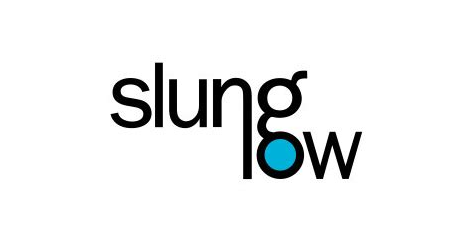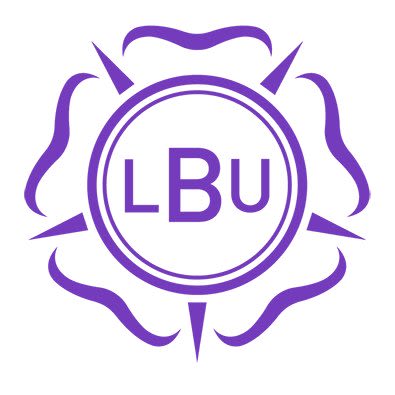Behind the Curtains of a Food Bank
A dive into the world of Slung Low, a theatre group-turned food bank, supporting their local community in a time of crisis.

Sitting in the shadow of Leeds' skyline, the area of LS11 is home to nearly 35,000 people. Holbeck, a large part of the postcode, thrived during the industrial age because of its placement next to the River Aire. Mills and workhouses boomed in the area. However, now, it features some of the most deprived streets in Leeds. Poorer areas in the country, such as LS11, have been disproportionately hit harder by the virus forcing many people to seek help from food banks. This is Slung Low’s story.
Having placed the food parcel on the doorstep, I stepped back onto the street. The birds sung a blissful song in the blue sky above me as piles of snow melted on the pavements into a soggy slush. I looked up and noticed the painted rainbows in the upstairs windows. A project at home school, no doubt.
The house looked like any other in the area. Dark, weathered bricks formed a maze of terraced homes that seemed to entangle around me. The street names followed on from the last, like a family; Recreation Street gave way to Recreation Mount and then Recreation Place.
Having knocked three times without an answer, I turned to walk back to the car just as the door began to unlock hesitantly. Standing there was not what I’d expected. With an uncontrollable grin spanning from ear to ear, a young child dressed in a unicorn onesie peeked around the door, using it as a shield, brimming with excitement.
“Hello!” I exclaimed awkwardly, smiling behind my surgical mask wondering how to proceed. “Are your parents' home?” She nodded slowly, the grin never leaving her face.
“Morning darlin’,” her mother said, opening the door fully. She looked tired, as though months of home schooling was starting to take its toll. “Go clear a space on the table,” she directed, as the unicorn skipped off to the kitchen beside her.
“Weather’s starting to turn, isn’t it!” I said, quickly realising that I was severely out of practise when it came to conversation.
“Isn’t it just,” she answered, entertaining my question as she bent down to collect the food from the plastic green crate. “Actually,” she stood back up, one arm supporting her back, “could I ask, a couple of my friends have recently started receiving these. I just wanted to make sure they were still on the list?”
“If they were on the list last week, they should receive a parcel today,” I told her. In truth, I didn’t know how to say that there were many people around the area receiving food that morning.
I'd had a conversation with a volunteer just that morning confirming that food parcel usage had spread too, just like the virus. He’d told me that when he first started driving, he’d have a single parcel to deliver. Now there were several parcels that went to the same street.
I had three food parcels in the back of my car, all being delivered to houses no more than a few feet away from each other. It was the first set of food parcels I’d ever run. In fact, the idea of food banks was totally foreign to me before 2020. For some, however, they’re a grim reality and have been for many years. For others, it’s a new world they’ve been forced into during the pandemic.
At the heart of the community sits The Holbeck, reportedly Britain's oldest Working Men's Club. It's here that Alan Lane, the group's artistic director, runs the food bank.
Slung Low are actually a theatre group. Before the pandemic, they would perform cabarets in the 250-seater space upstairs, entertaining the locals with shows that were pay-what-you-decide. Now, the focus is primarily on distributing as many food parcels as possible each week.
When they took the keys in 2018, the members of the Working Men's Club were, understandably, apprehensive. But, as Alan and his team learnt how to pull pints and sweep the floors, the patrons largely warmed to them.
Just a year after moving in, Slung Low were forced to close their doors alongside pubs across the country. At that point, Alan knew there was more they could do for their community than simply lock up and sit back.
Snooker tables were covered and turned into storage space for food parcels. Bars were closed and rooms were filled with tinned goods, fruit and vegetables. Soon the theatre group would be joined by an army of volunteers who help create and distribute the food parcels across South Leeds.
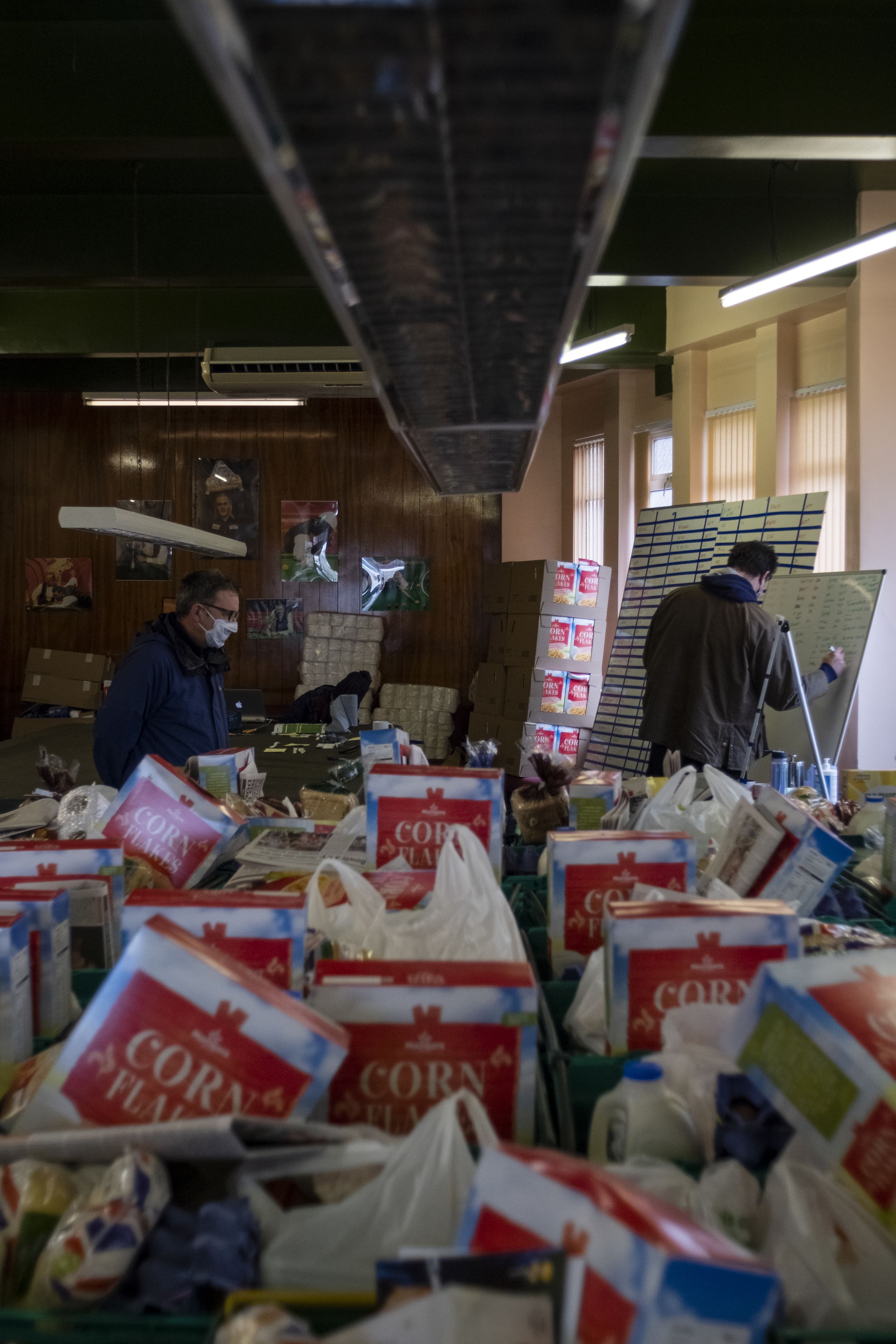
The Foodbank is done for 2020.
— Alan Lane (@slunglowalan) December 18, 2020
8188 referrals
Non means tested self referral
That’s a lot of milk. A lot of volunteers. A lot of help from all of you, Clipper, LUFC and the Real Junk Food Project. A lot of stress and strain, and some hope
Well done everybody
We kept our promise pic.twitter.com/diIjnOBoTT
“8,188,” Alan corrected me as I asked about the 8,000 food parcels they’d delivered in 2020. With over 200 food parcels being created per week, the group are set to deliver over 10,000 more by the end of 2021, should they be needed.
It's amazing example of community spirit and hard work. However, it’s troubling to think that so many people rely on free bread from food banks in one of the richest countries in the world.
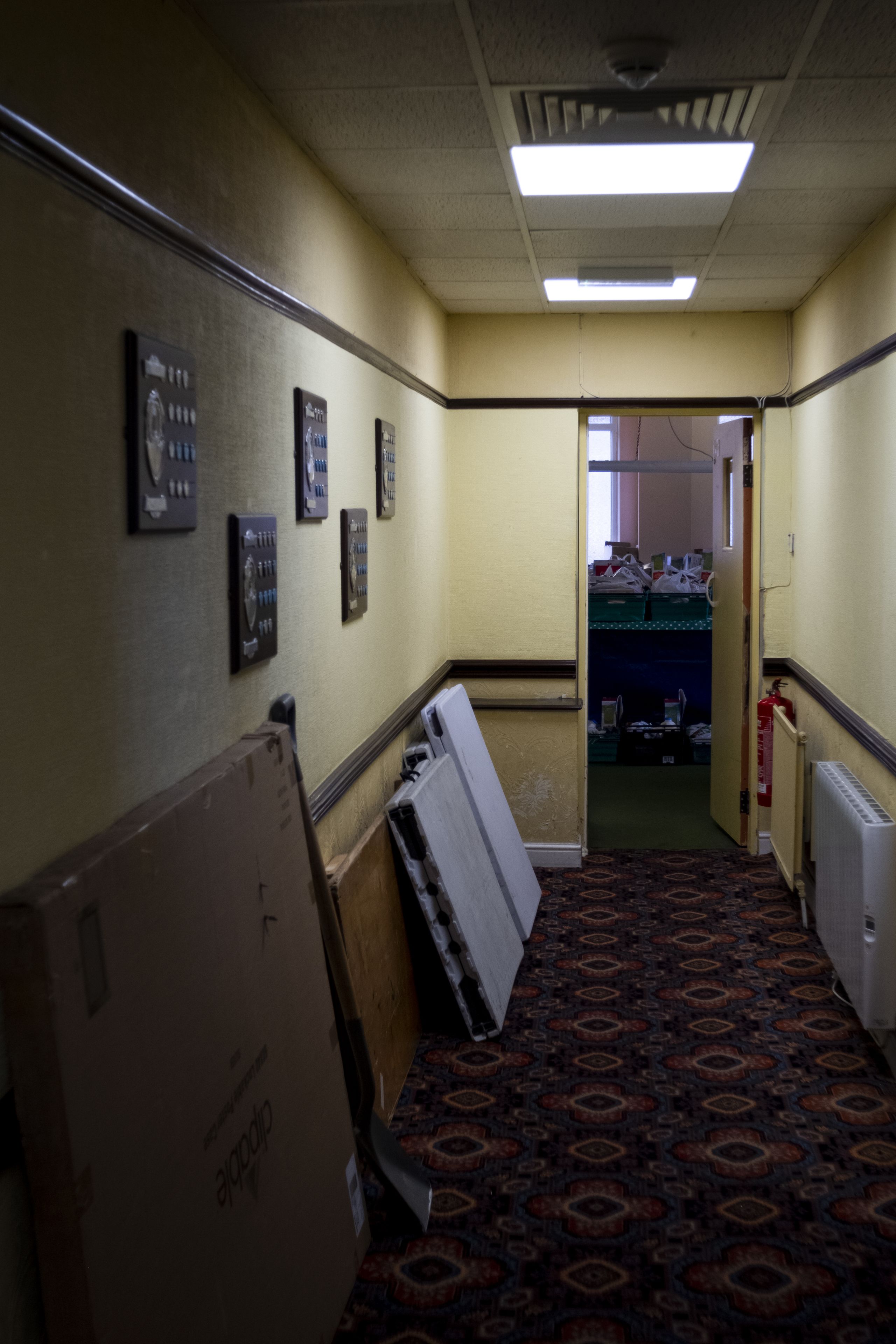

Delivering food parcels to homes across Holbeck that morning highlighted to me just how fragile our society really is. For those who have cupboards full of food and hot running water, it might be easy to ignore the fact that the person living next door might too be reliant on a food parcel each week.
Before the pandemic, The Trussell Trust, an organisation responsible for two thirds of the UK’s food banks, revealed that they’d seen an increase of nearly 75% of food parcel distribution from 2015 to 2020. More worryingly, this statistic was released in March 2020, before the virus really took hold in the UK.
From April to September 2020, they distributed over 1.2 million food parcels. If anything, COVID has highlighted just how close a large proportion of the country is teetering on the edge of hunger and unemployment.
Food banks are a relatively new idea here in the UK. The world’s first food bank was opened in 1967 in Phoenix, Arizona by a man named John van Hengel on a mission to end hunger in his local community after having a conversation with a mother who relied on soup kitchens and supermarket bins for food.
It would be 33 years until the UK would see its first food bank open, and a further four until a network was set up across the country to support those going hungry. Now, there are more than a thousand food banks located throughout the UK providing help to those who need it.
Whilst the pandemic has highlighted gaps in society that require investment, such a large upscale of food bank usage has proven even this system might not be working either.
In order to prevent exploitation, food banks typically require a referral from a social worker or Citizens Advice. However, the idea of discussing personal details about finances and employment is enough to make many shy away from seeking help. Instead, they suffer in silence. The process of deciding whether they’re deserving or undeserving of help can sometimes be too much.
Under a system like this, many people go hungry whilst billions of pounds worth of food is thrown away each year by supermarkets and restaurants.
In order to combat this, smaller, independent food banks, such as Slung Low, have adopted a no-means-tested approach, allowing for anyone to ask for food. Whilst this might allow for some exploitation of the system, Alan believes that, on balance, it's better than having people go hungry.
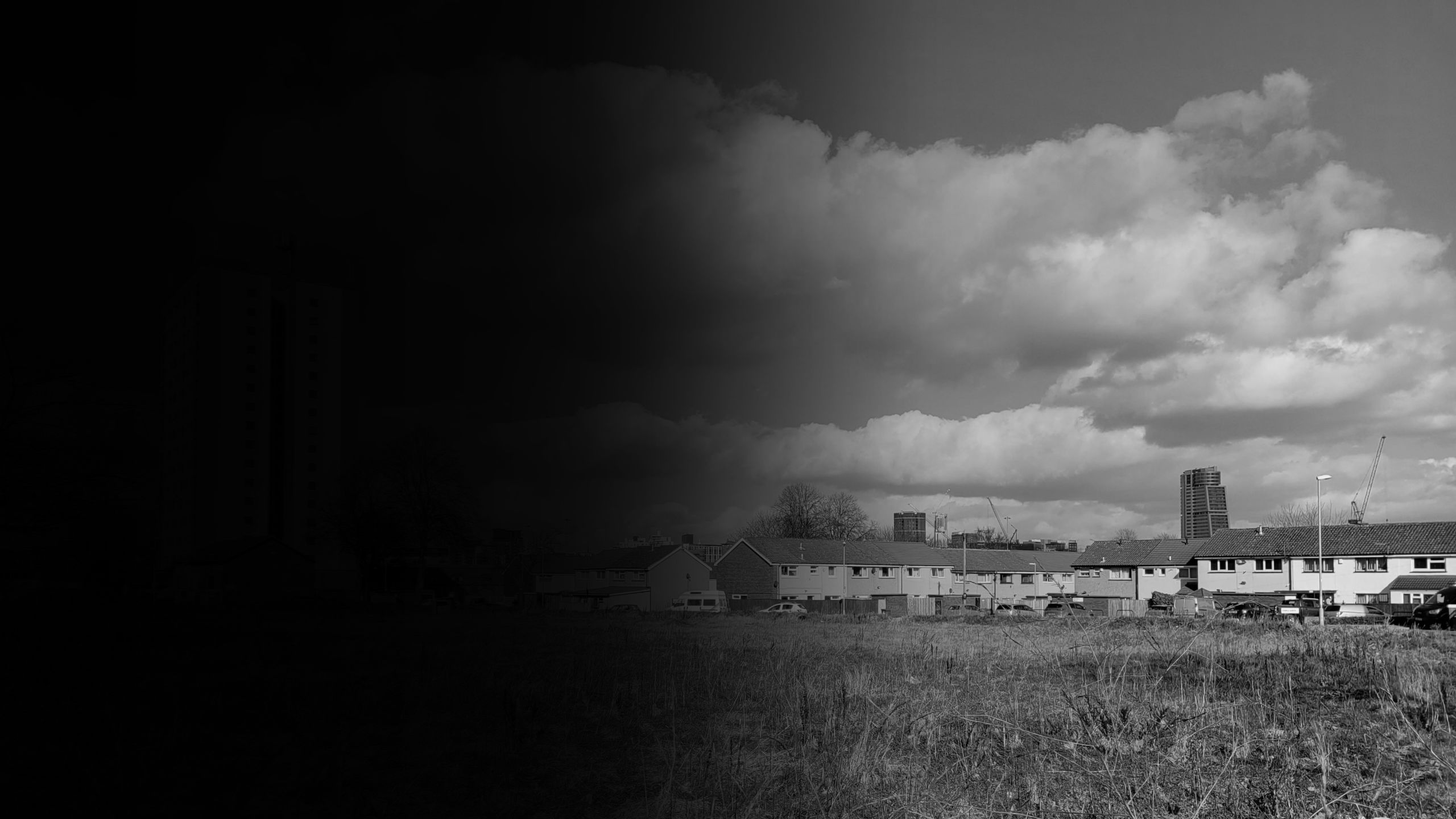
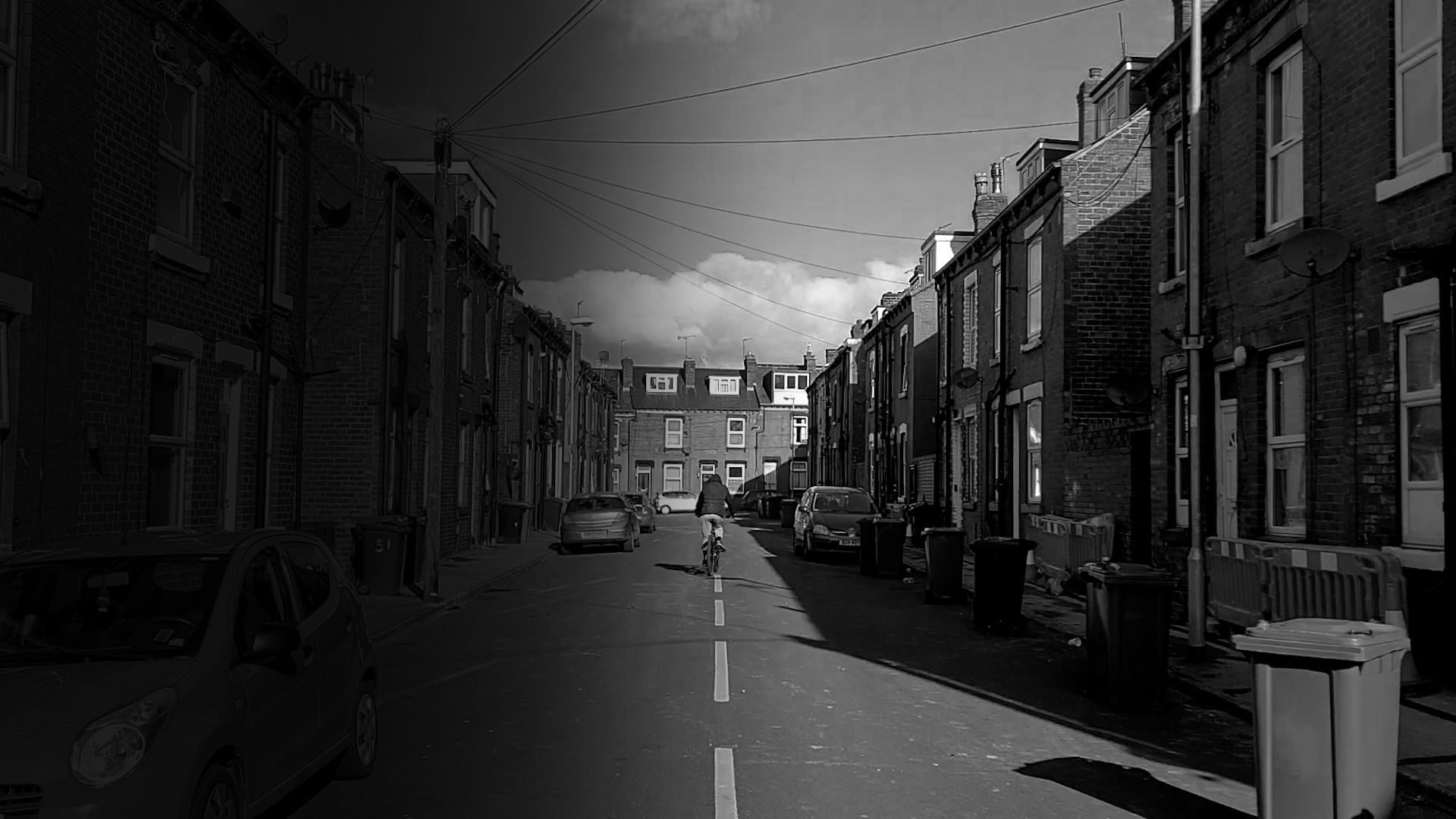
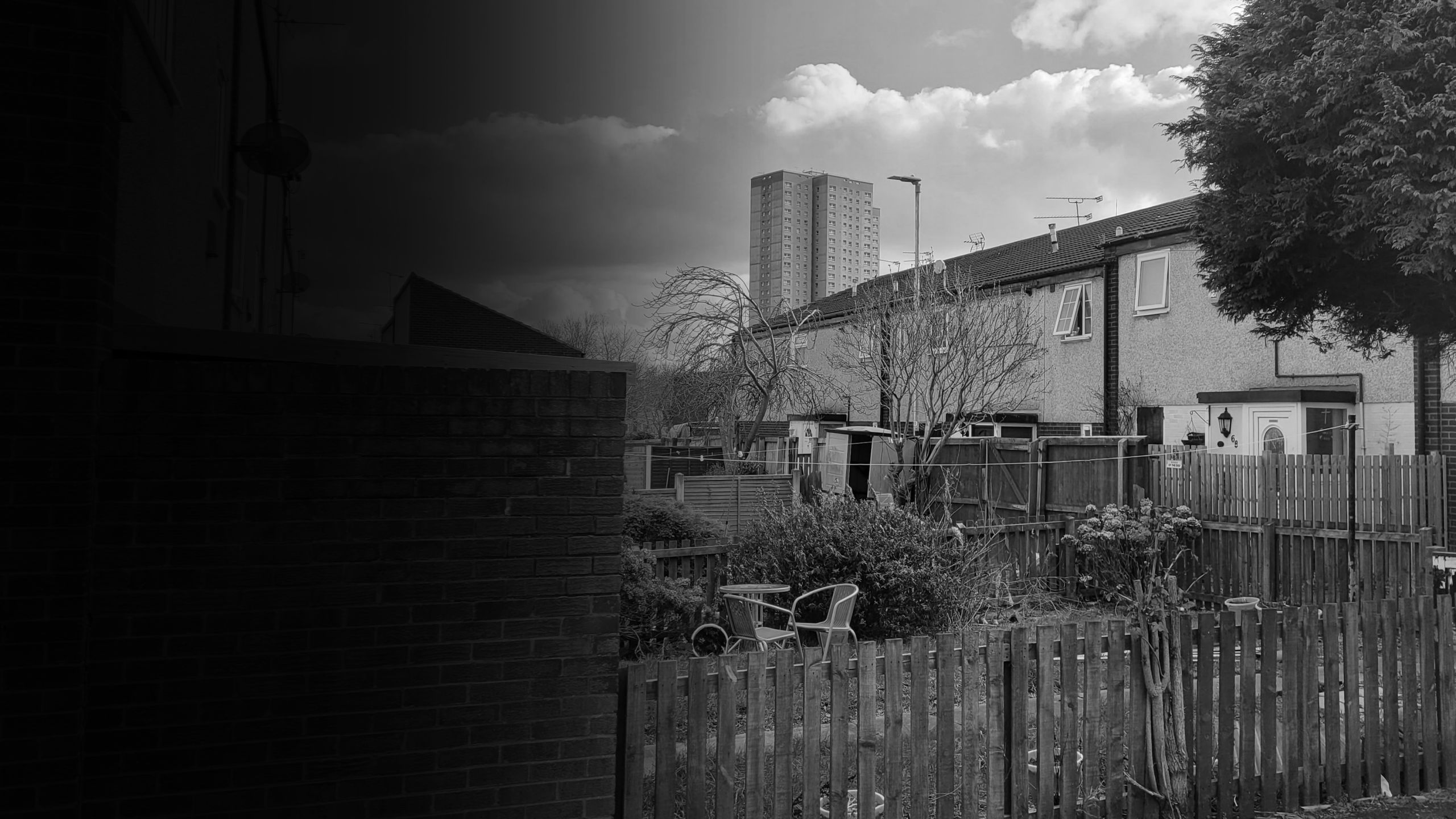
Delivering food parcels to homes across Holbeck that morning highlighted to me just how fragile our society really is. For those who have cupboards full of food and hot running water, it might be easy to ignore the fact that the person living next door might too be reliant on a food parcel each week.
Before the pandemic, The Trussell Trust, an organisation responsible for two thirds of the UK’s food banks, revealed that they’d seen an increase of nearly 75% of food parcel distribution from 2015 to 2020. More worryingly, this statistic was released in March 2020, before the virus really took hold in the UK.
From April to September 2020, they distributed over 1.2 million food parcels. If anything, COVID has highlighted just how close a large proportion of the country is teetering on the edge of hunger and unemployment.
Food banks are a relatively new idea here in the UK. The world’s first food bank was opened in 1967 in Phoenix, Arizona by a man named John van Hengel on a mission to end hunger in his local community after having a conversation with a mother who relied on soup kitchens and supermarket bins for food.
It would be 33 years until the UK would see its first food bank open, and a further four until a network was set up across the country to support those going hungry. Now, there are more than a thousand food banks located throughout the UK providing help to those who need it.
Whilst the pandemic has highlighted gaps in society that require investment, such a large upscale of food bank usage has proven even this system might not be working either.
In order to prevent exploitation, food banks typically require a referral from a social worker or Citizens Advice. However, the idea of discussing personal details about finances and employment is enough to make many shy away from seeking help. Instead, they suffer in silence. The process of deciding whether they’re deserving or undeserving of help can sometimes be too much.
Under a system like this, many people go hungry whilst billions of pounds worth of food is thrown away each year by supermarkets and restaurants.
In order to combat this, smaller, independent food banks, such as Slung Low, have adopted a no-means-tested approach, allowing for anyone to ask for food. Whilst this might allow for some exploitation of the system, Alan believes that, on balance, it's better than having people go hungry.
There’s nothing luxurious about a food parcel. A conversation has been murmuring in the background of British society for a few years about addiction to food parcels.
Some believe that food bank users are ‘selfish’ and simply abuse the system to get free food so they can spend money on cigarettes and alcohol. Others think that people should simply ‘work harder’ to get better wages and therefore not have to rely on free tins of soup.
However, if the pandemic's done anything, it's shown just how unstable our collective situation is. In a world where zero hour contracts are the norm, and freelancing is becoming more popular, many households simply don't know where the next paycheck is coming from. We've normalised a working practice that crumbles under the slightest pressure.
“If you’re a zero-hour contract cleaner in this area here with two kids, you are screwed. You haven’t had any work in a year.”
Driving a small number of parcels around LS11 on that Wednesday morning proved to me that there isn’t a typical food bank user. Not in the COVID era. One parcel might be given to a single man, the next to a small family a few streets away. Each receive at least:
Milk
Eggs
Cheese
Bread
Breakfast cereal
Rice, pasta and noodles
Fruit and vegetables
Toilet rolls
These are items that, for many, will be the first things on the shopping list each week. But for millions of people in one the richest countries in the world, are products that are simply out of reach at the moment.
As he sorted through the latest batch of addresses, Alan talked about the idea that people might turn up to the food bank in a brand new, flash car to pick up some free pasta. Not because they're abusing the system, but because they’re tied into a contract for that car that they can no longer afford due to recent unemployment. Millions of people have never been so close to food poverty.
But where does this food come from? In a recent blog post, Alan opened up about the fact that the initial source of food, Costco, was largely unsustainable. He believed that the group were simply acting as free waste management for the wholesaler, forcing the charity to sift through mouldy produce and butter scarred with boot prints.
Now, the group works with The Real Junk Food Project, another charity who have been dedicated to feeding the world and working towards their belief that it should be a human right to have access to food. Together, with donations from other partners, they are able to provide help for over 7500 homes across LS11 in this moment of crisis.
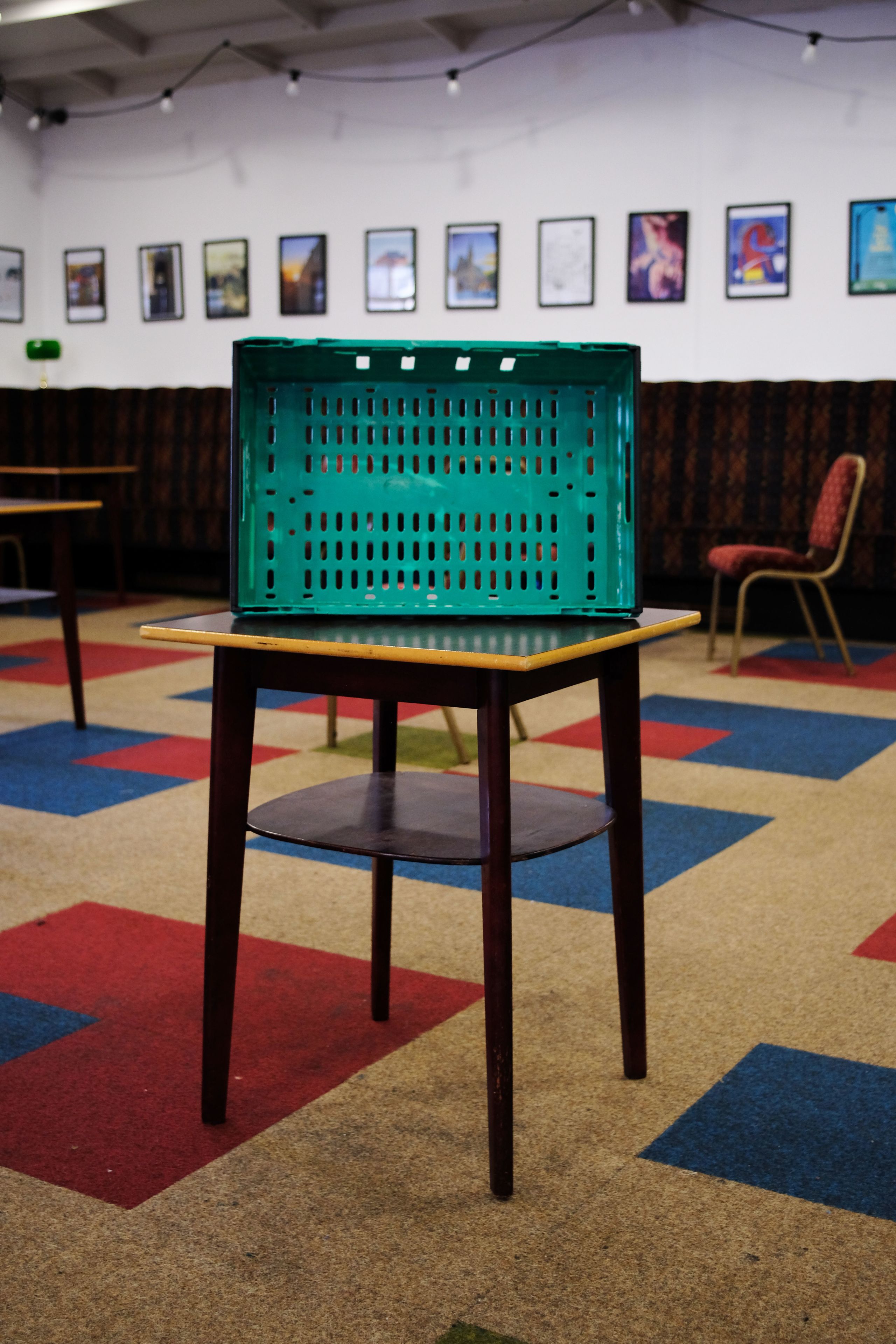
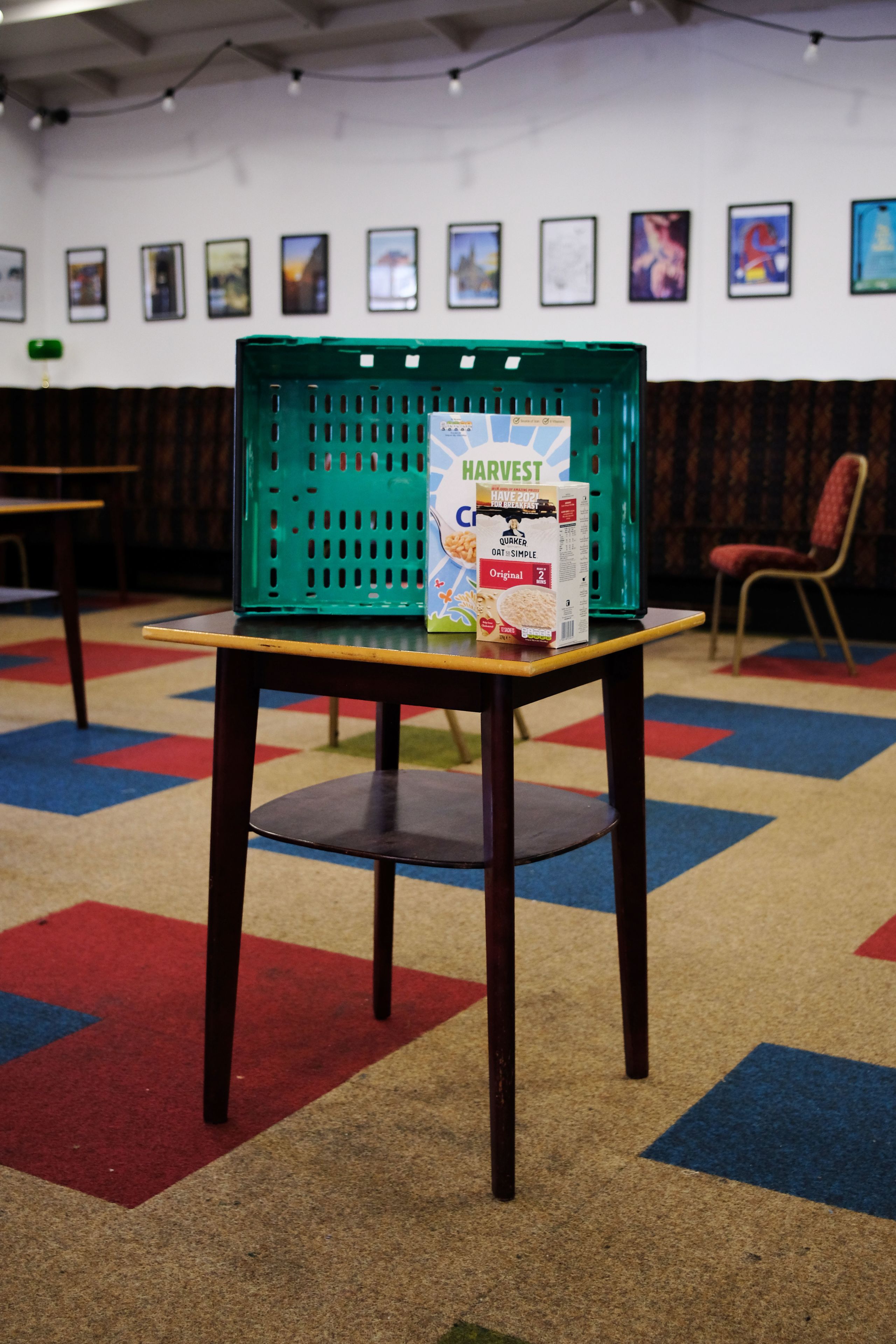
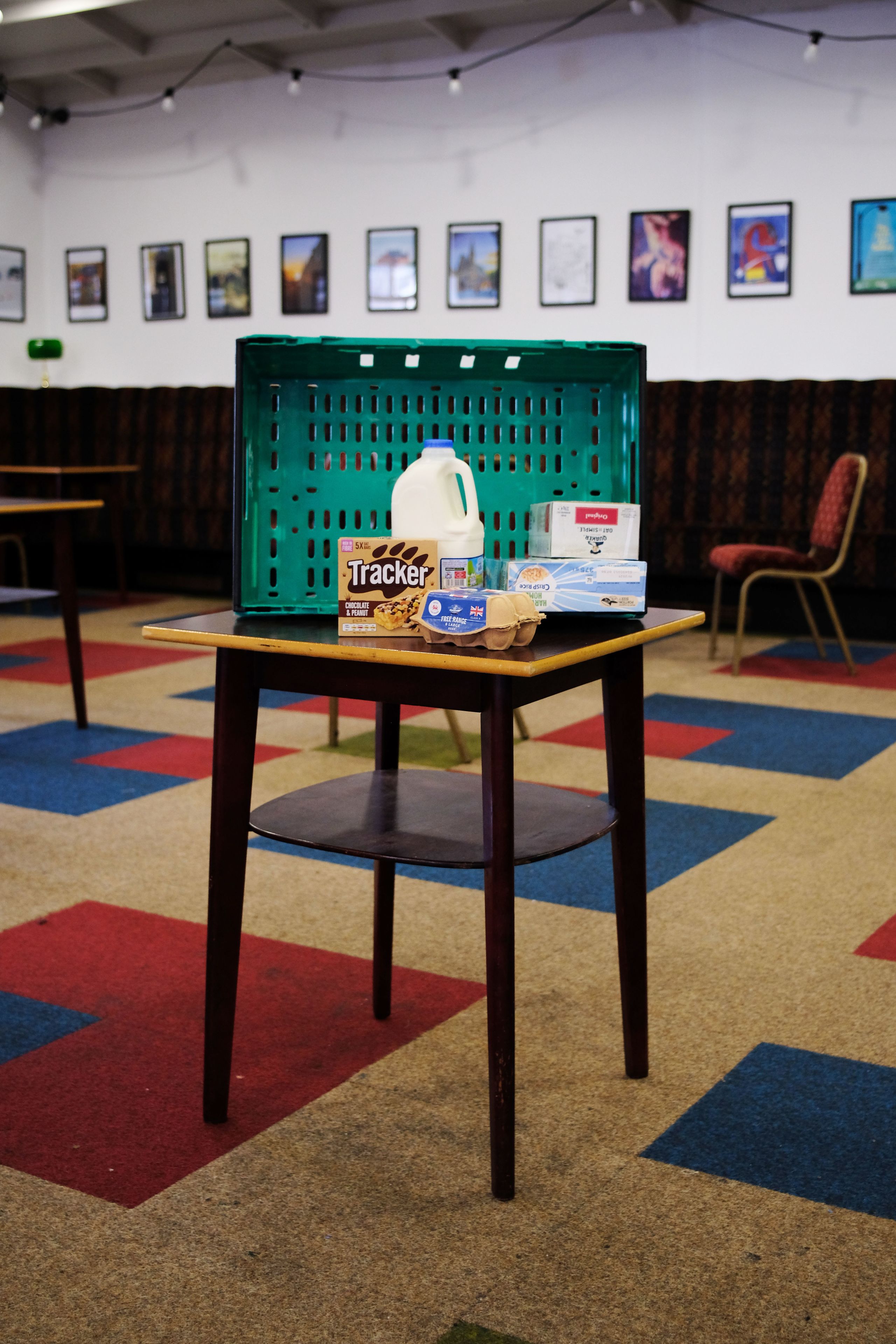
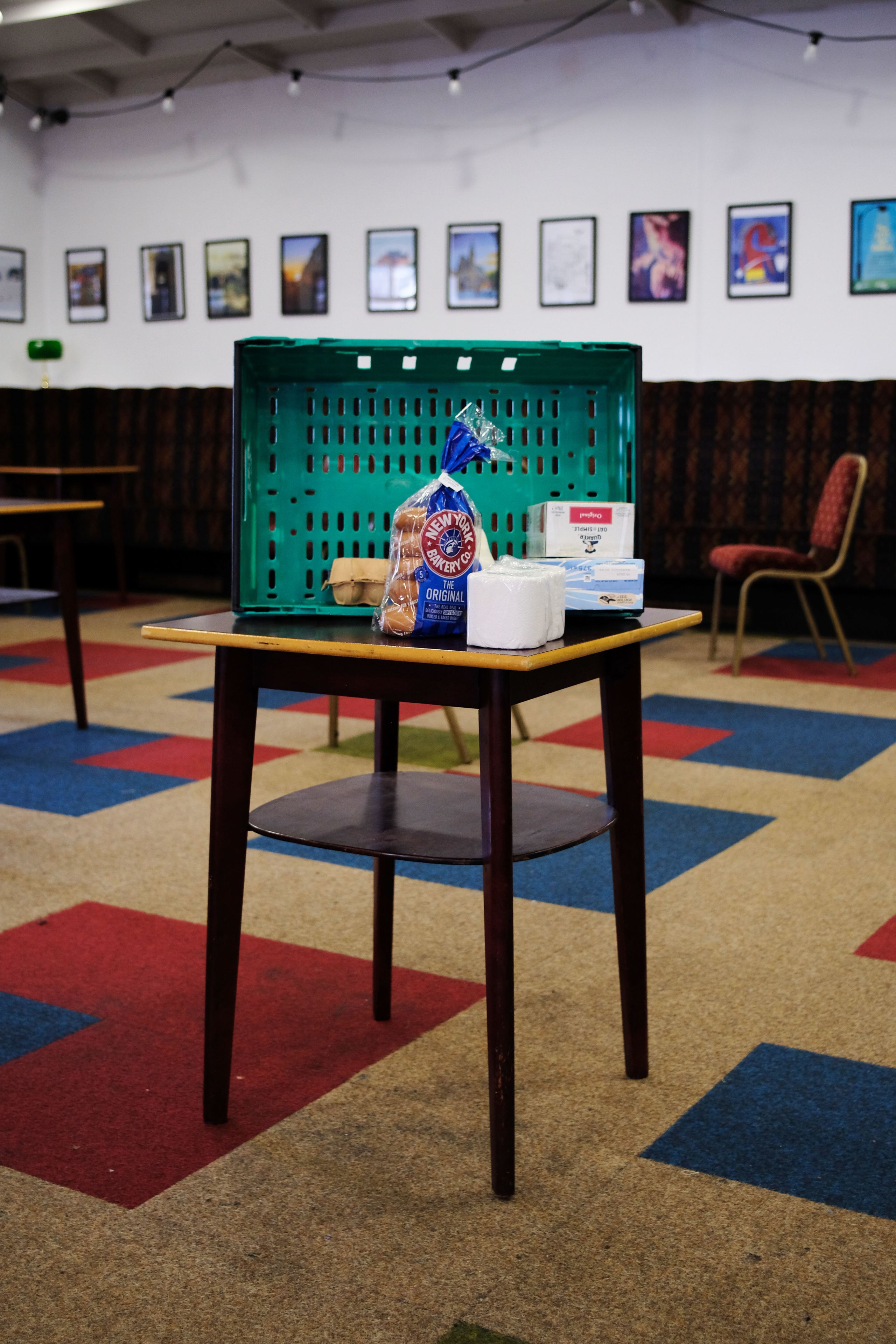
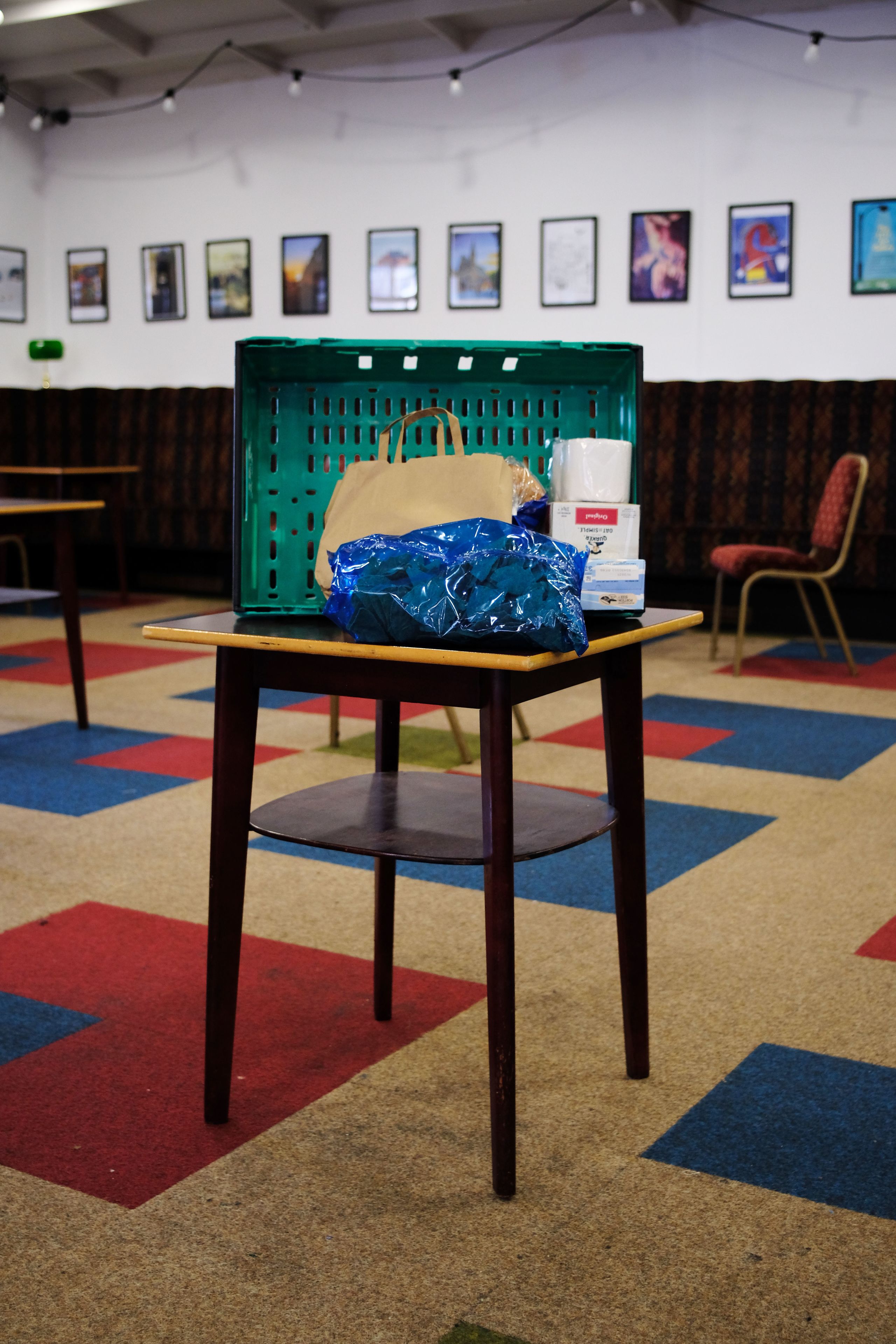
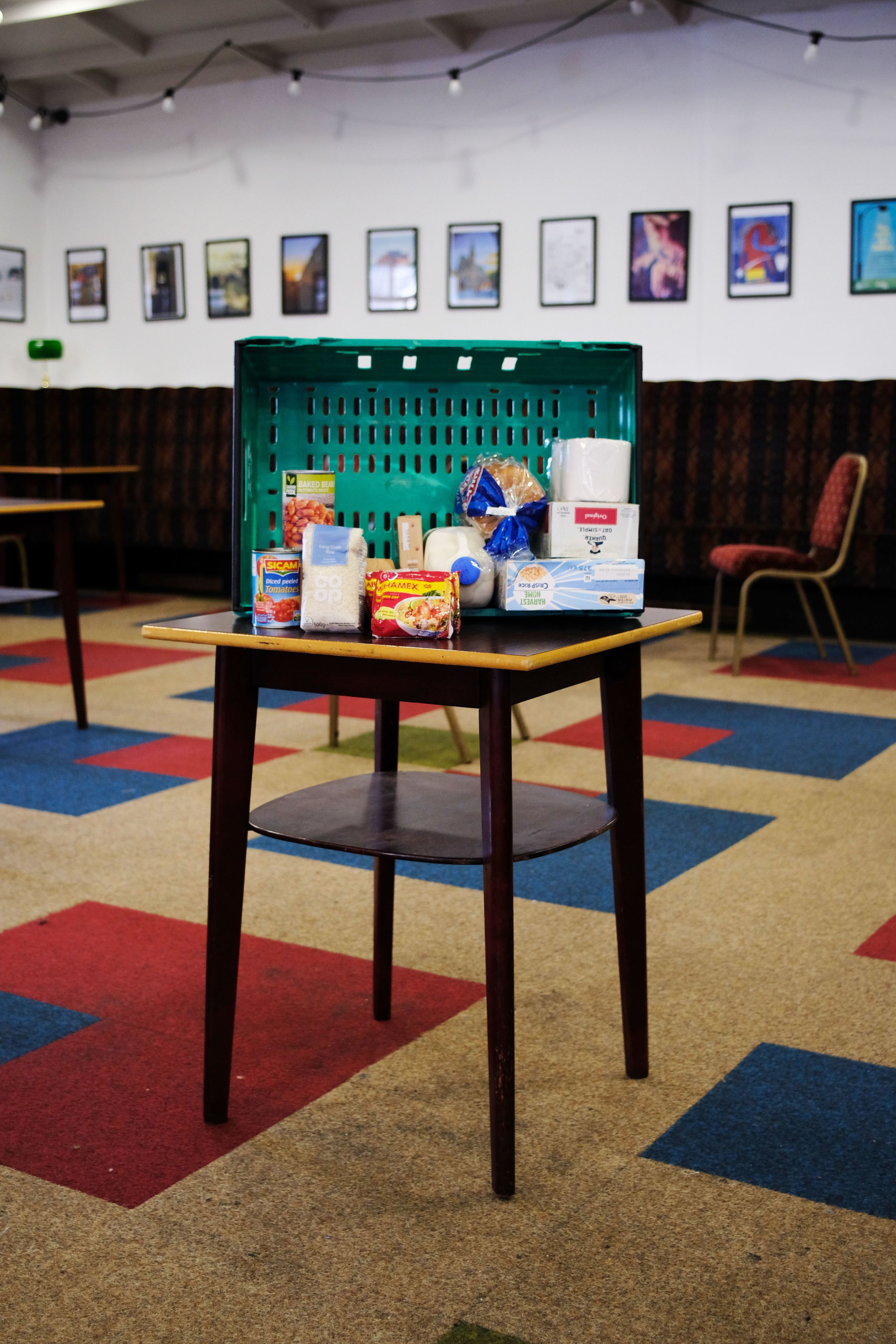
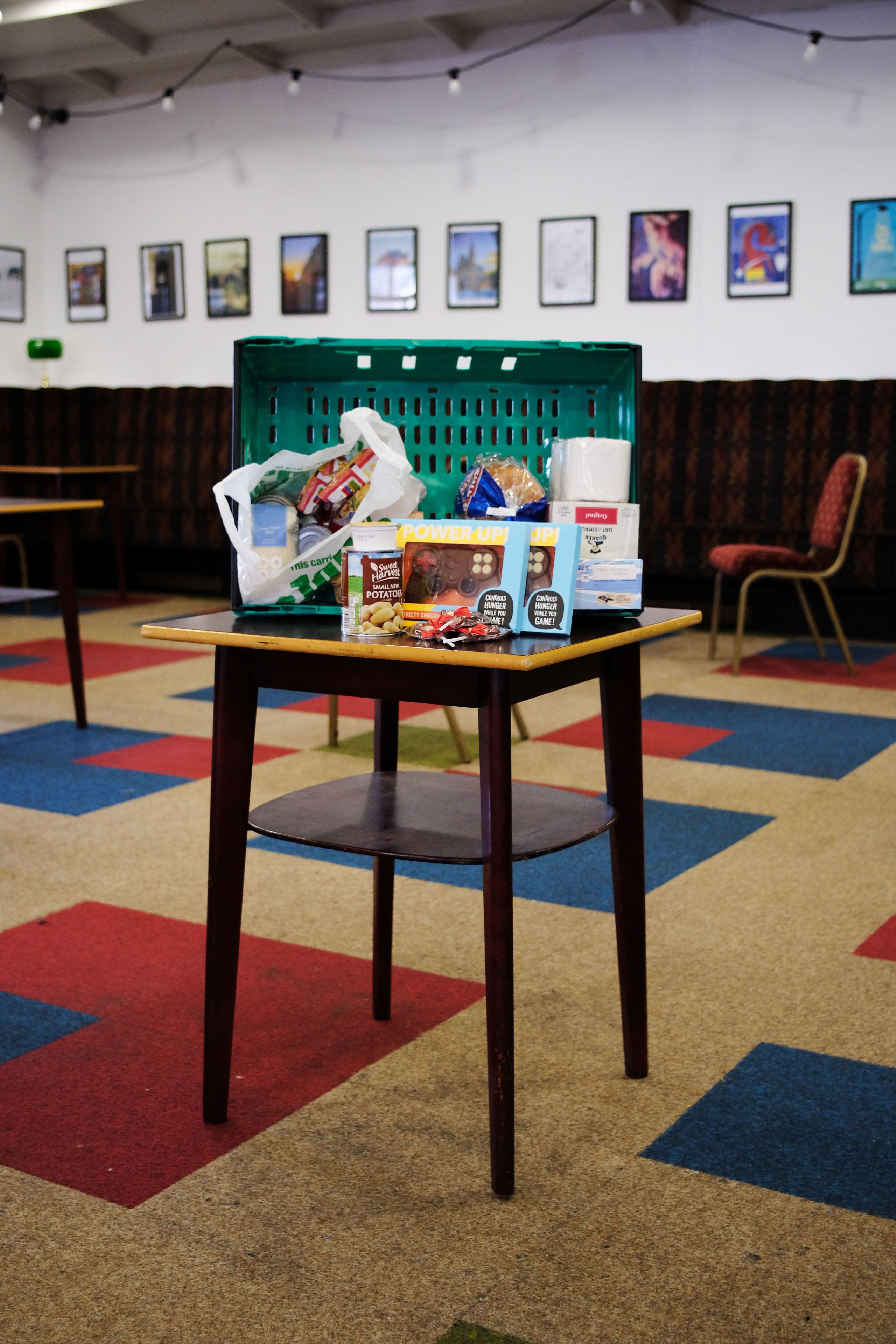
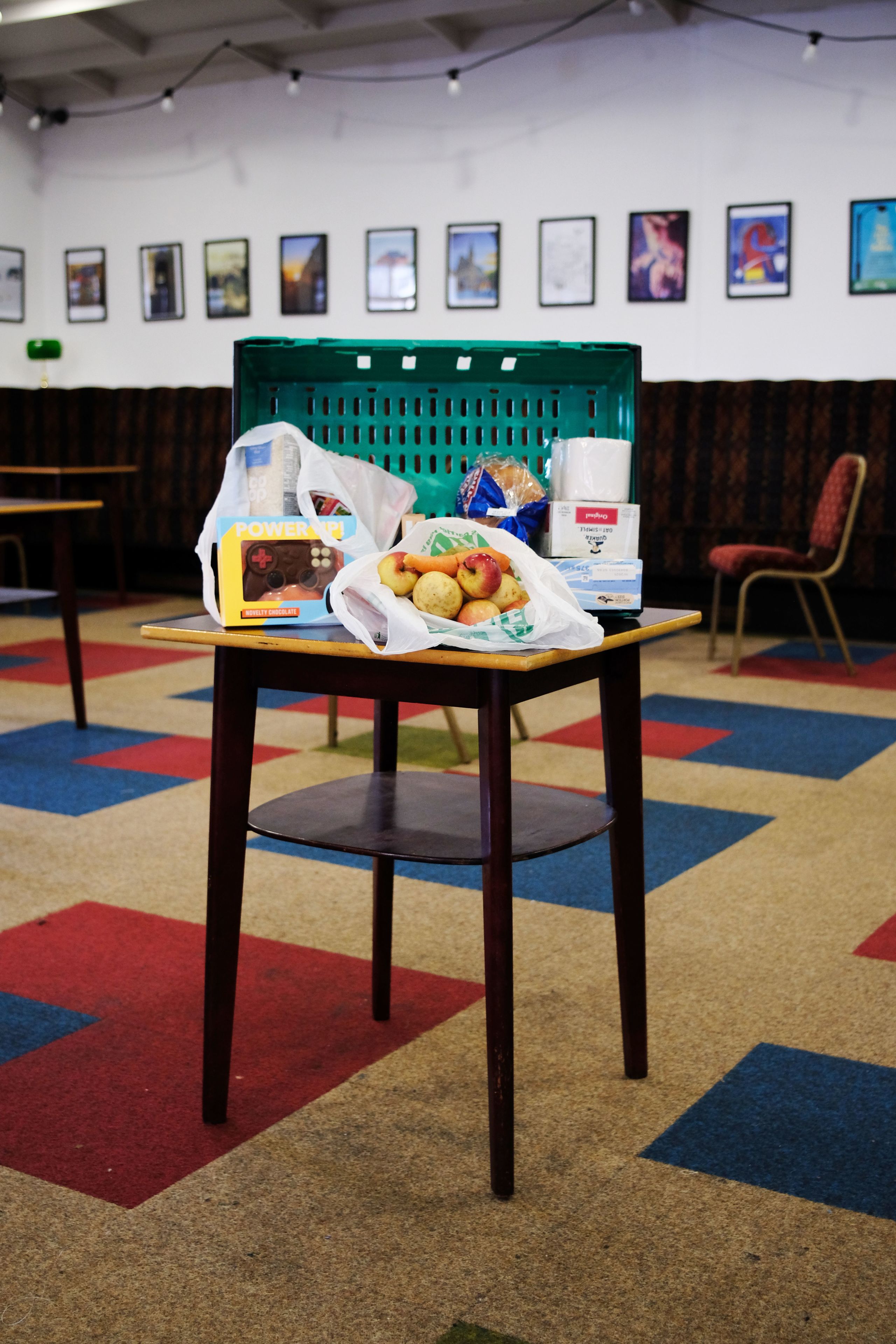
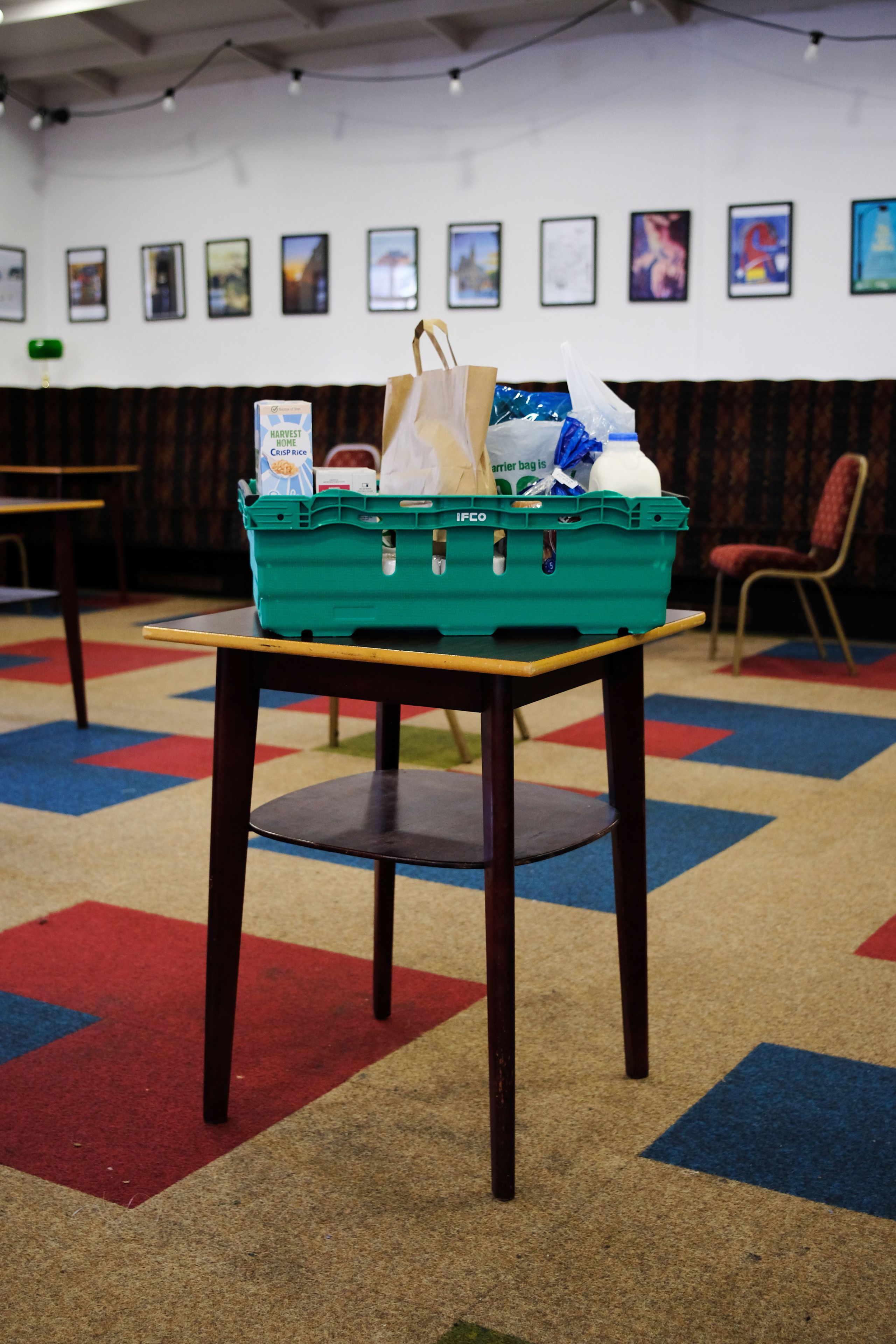
There’s nothing luxurious about a food parcel. A conversation has been murmuring in the background of British society for a few years about addiction to food parcels.
Some believe that food bank users are ‘selfish’ and simply abuse the system to get free food so they can spend money on cigarettes and alcohol. Others think that people should simply ‘work harder’ to get better wages and therefore not have to rely on free tins of soup.
However, if the pandemic's done anything, it's shown just how unstable our collective situation is. In a world where zero hour contracts are the norm, and freelancing is becoming more popular, many households simply don't know where the next paycheck is coming from. We've normalised a working practice that crumbles under the slightest pressure.
“If you’re a zero-hour contract cleaner in this area here with two kids, you are screwed. You haven’t had any work in a year.”
Driving a small number of parcels around LS11 on that Wednesday morning proved to me that there isn’t a typical food bank user. Not in the COVID era. One parcel might be given to a single man, the next to a small family a few streets away. Each receive at least:
Milk
Eggs
Cheese
Bread
Breakfast cereal
Rice, pasta and noodles
Fruit and vegetables
Toilet rolls
These are items that, for many, will be the first things on the shopping list each week. But for millions of people in one the richest countries in the world, are products that are simply out of reach at the moment.
As he sorted through the latest batch of addresses, Alan talked about the idea that people might turn up to the food bank in a brand new, flash car to pick up some free pasta. Not because they're abusing the system, but because they’re tied into a contract for that car that they can no longer afford due to recent unemployment. Millions of people have never been so close to food poverty.
But where does this food come from? In a recent blog post, Alan opened up about the fact that the initial source of food, Costco, was largely unsustainable. He believed that the group were simply acting as free waste management for the wholesaler, forcing the charity to sift through mouldy produce and butter scarred with boot prints.
Now, the group works with The Real Junk Food Project, another charity who have been dedicated to feeding the world and working towards their belief that it should be a human right to have access to food. Together, with donations from other partners, they are able to provide help for over 7500 homes across LS11 in this moment of crisis.
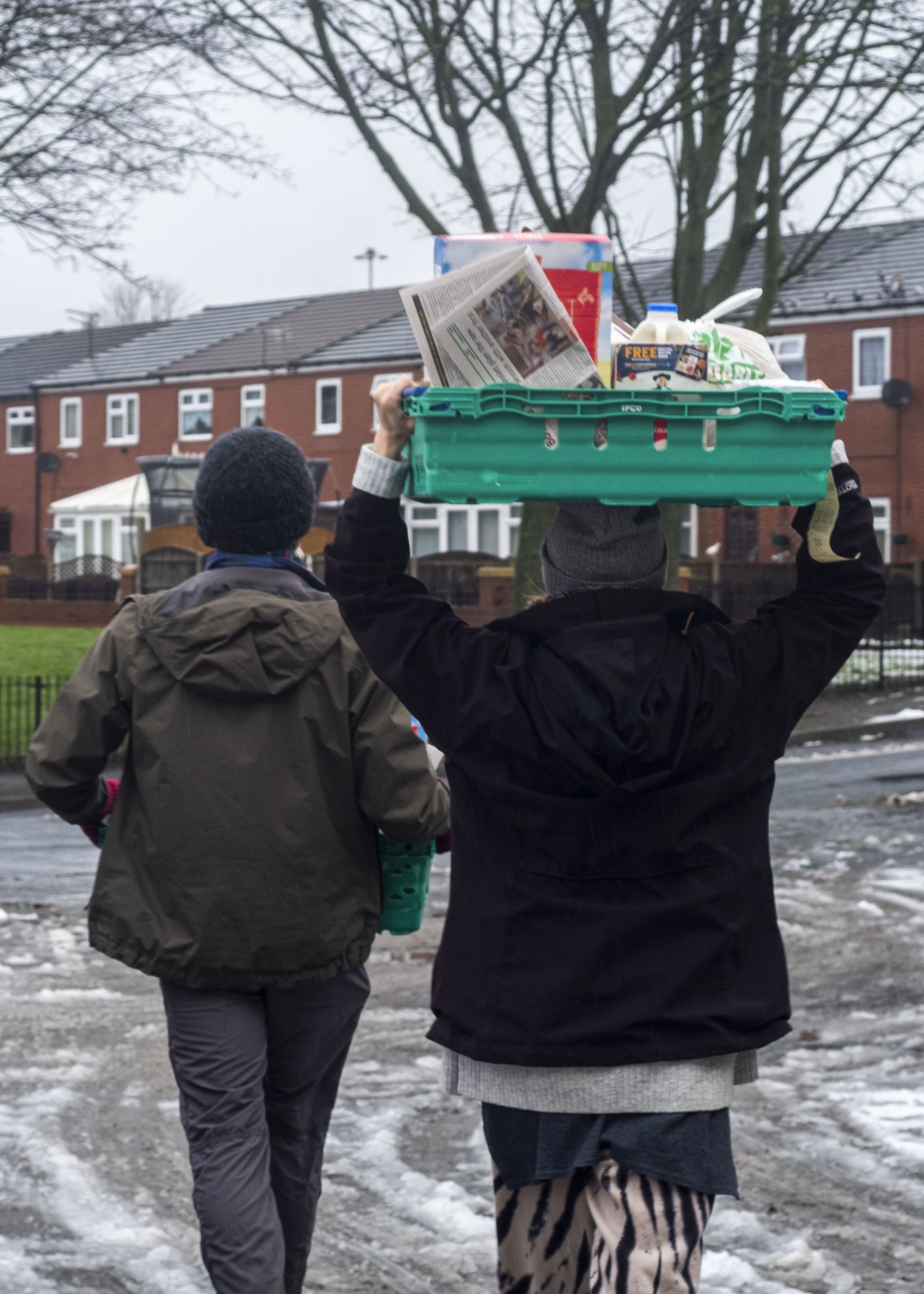
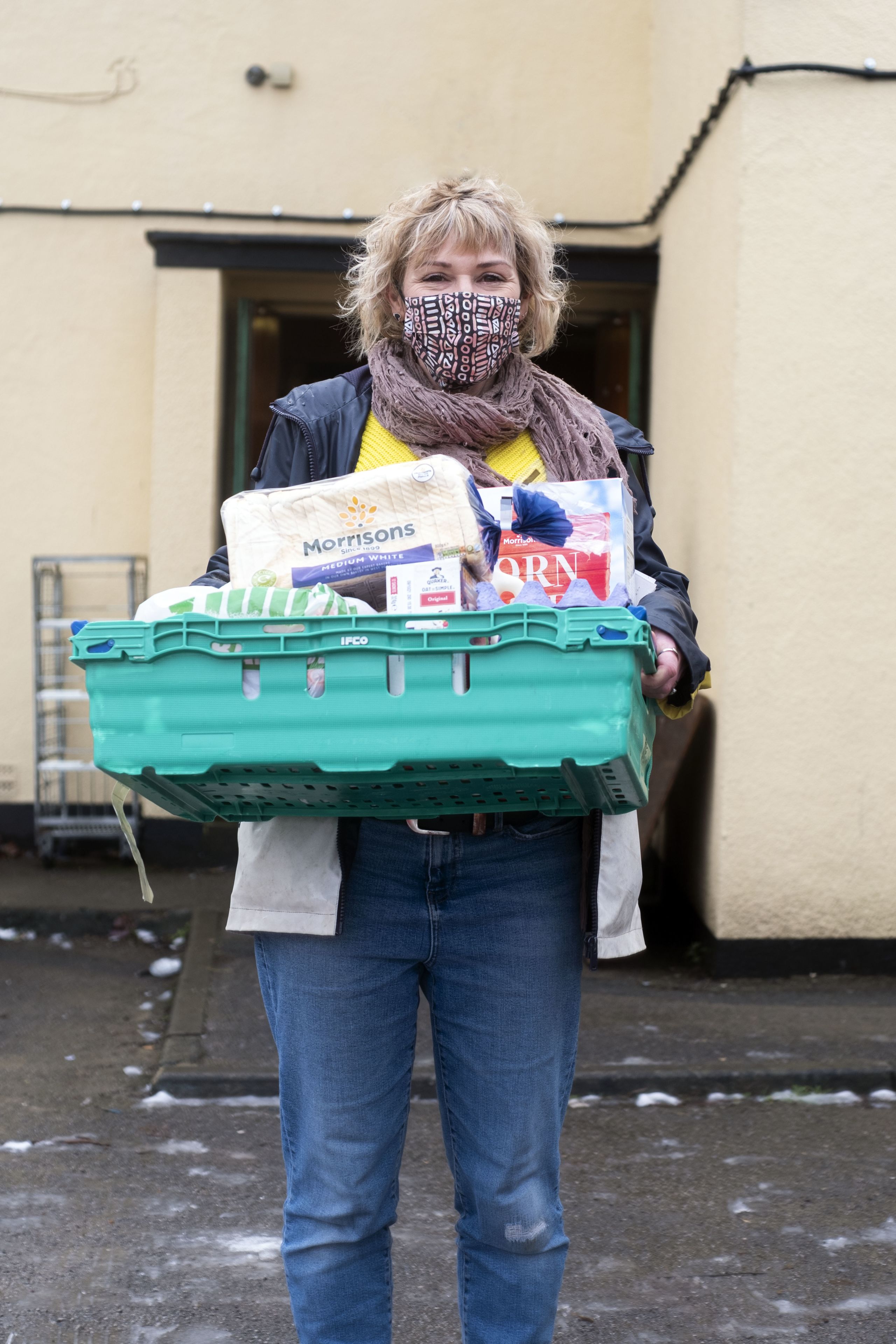
"What’s so great to see is the diversity of help you see around The Holbeck every Wednesday,” a volunteer told me as I walked a food parcel to my car. “One moment, you’ll see a student hop out of an old banger, the next, a businessman will be placing food parcels in the back of his eighty-grand car. Amazing really.” And it was amazing. To see old and young stood next to each other, rich and poor, all combatting a single problem. Together.

That morning, in just three hours, Slung Low produced 250 food parcels for the surrounding area. Whilst their primary catchment area is LS11, some parcels reached as far as Seacroft, nearly 7 miles away.
Some of those receiving the parcels were just as excitable as the girl in the unicorn onesie, others hardly mumbled a “thank you” as they quickly tipped the contents onto the floor. But to every single person or family, in LS11 and beyond, receiving food that morning, the service Slung Low provide is invaluable.
Without it, hundreds of families across South Leeds would go hungry. But as vaccines rollout across the world and some normality resumes in society, many believe it will be the poorer in society left behind once again.

Slung Low are set to continue delivering food parcels to those around them for the foreseeable future. But it's a temporary solution to a seemingly permanent problem.
Some say that the economy will bounce back to pre-pandemic levels in the coming year, whilst others believe that the new budget might force hundreds of thousands more into poverty. Neither of these arguments negate the fact that food bank usage was already on an exponential incline before March 2020. That millions of food parcels were delivered in 2019 to people who are starving.
The general feeling behind the doors at Slung Low is that if we're to rebuild the UK after one of the most difficult times this country's experienced since the Second World War, then it must be done together. That no community should be left behind.
As many of us begin to plan on what restaurant we’ll eat in the summer, many are simply asking whether they’ll be able to buy cereal for their children next week. How, in the sixth largest economy in the world, did it get to this?
Be Kind. Be Useful. We go again tomorrow, pals.

